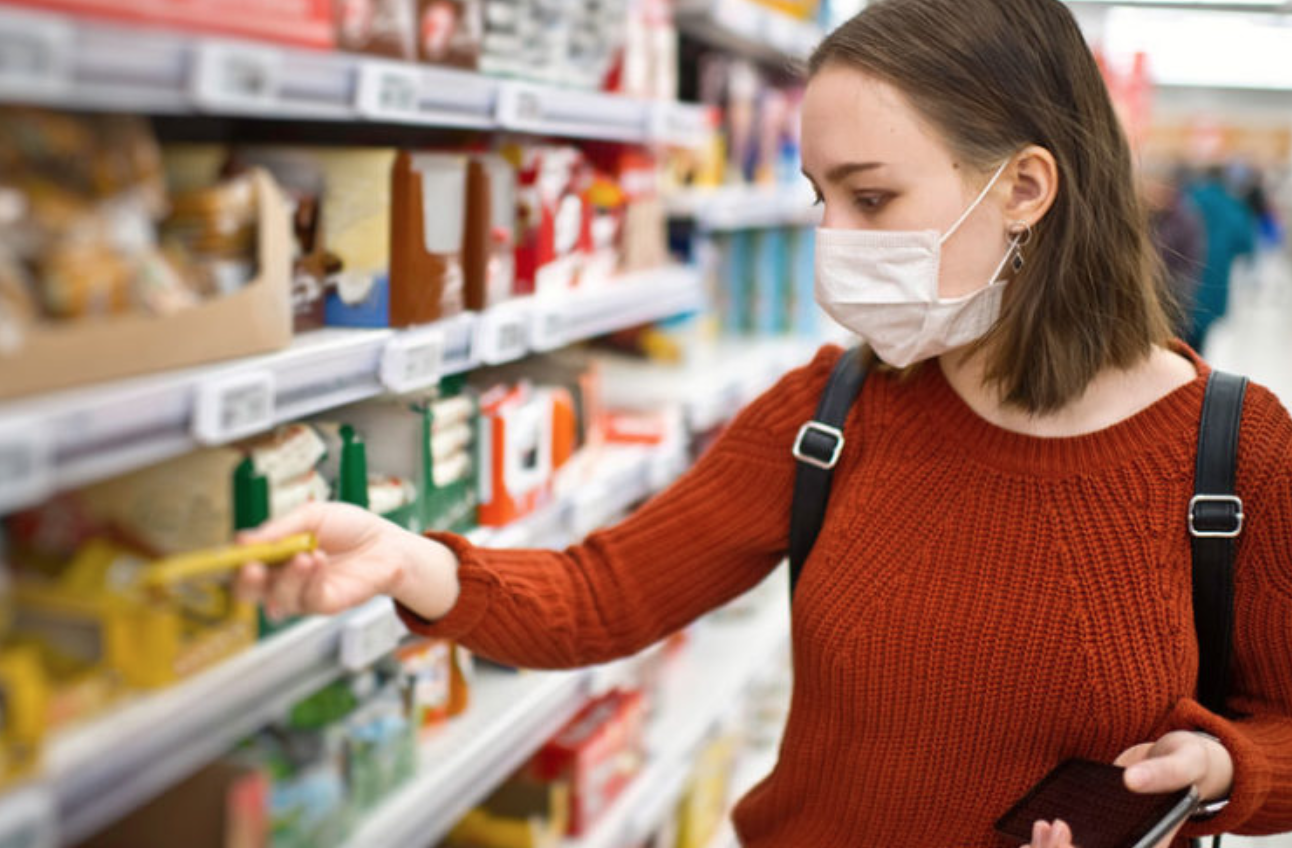 COVID-19 has many people staying at home except for essential activities like seeking medical care, exercising, walking their dog, or shopping for groceries.
COVID-19 has many people staying at home except for essential activities like seeking medical care, exercising, walking their dog, or shopping for groceries.
Shopping for groceries, though, carries extra risk.
Not only are you near other people, but many of the products you’re buying have probably been handled by others — and possibly sneezed or coughed on.
But you can take a little extra care when handling your groceries to avoid spreading the virus to other people and surfaces in your house.
That’s why it’s important to stay at least 6 feet from other people at all times.
Do not be afraid to ask others to step back if they are too close to you in line. Or wait a few moments to grab something if others are already by the item you want.
It’s not clear, though, how much of a role produce and food packaging plays in transmitting the virus that causes COVID-19. People can pick up the virus by touching contaminated surfaces and then touching their eyes, nose, or mouth.
Some surfaces may pose a bigger risk than others.
A recent study in the New England Journal of Medicine found that the virus was detectable on plastic and stainless steel for up to 72 hours, and on cardboard for up to 24 hours.
When you’re at the supermarket, you should assume all surfaces everywhere have been touched by someone who is sick. This includes produce and packaged foods.
Touch just the items you intend to buy, wipe down the cart or basket handles with disinfectant wipes, and wash your hands or use hand sanitizer when you’re done.
Many people are also reducing their potential exposure by using curbside pick-up or at-home delivery. Even local food producers are offering these services.
Some farmers markets are allowing customers to preorder foods so they are already packaged when you come pick them up, reducing the amount of time that you need to be near other people and reducing the amount of items that you can touch.
Cleaning Groceries At Home
Whichever way you get your groceries, you’ll want to handle them carefully when you get them home. This will reduce the chance of spreading the virus to other people or surfaces in your house.
At the very least you should wash your hands after unpacking and putting away your groceries.
If you’re concerned about potential contamination on your groceries, you can take additional steps to protect yourself.
Some people may choose to wipe or wash cans and boxes of food before storing them to reduce possible virus content. You can also throw out disposable packaging.
When you’re done, wash any tables, countertops, or other surfaces that were touched by your groceries or grocery bags.
And wash your hands again.
If you’re using cloth bags, wash them with laundry soap in a washing machine and dry them thoroughly before reusing them.
If you or someone in your household is at higher risk for severe illness from COVID-19, you might want to adopt the modified “sterile technique," as explained in this YouTube video.
One option is to leave your groceries in your garage or porch for at least 72 hours to allow the virus to become inactive.
A key part of the method is setting up a cleaning station to avoid contaminating your food or other surfaces in your house.
After that, it involves wiping down all packaging with a disinfectant before putting your groceries away. You can also discard packaging and transfer the food to a clean bag or container.
For fruits and vegetables, scrub them for at least 20 seconds with soap and water.
The Food and Drug Administration doesn’t recommend using soap when cleaning produce because of the risk of ingestion. So if you choose to use soap and water on your fruits and vegetables, rinse them completely with clean water before storing.
Taking these precautions with your groceries can help you lower your chance of being exposed to the virus.
If you do get sick, you’ll need to take extra care in order to protect your family.

